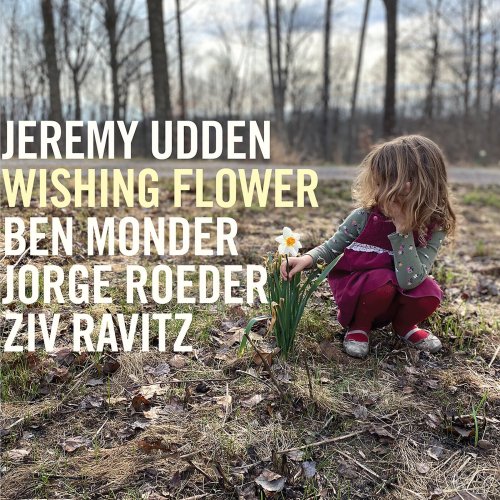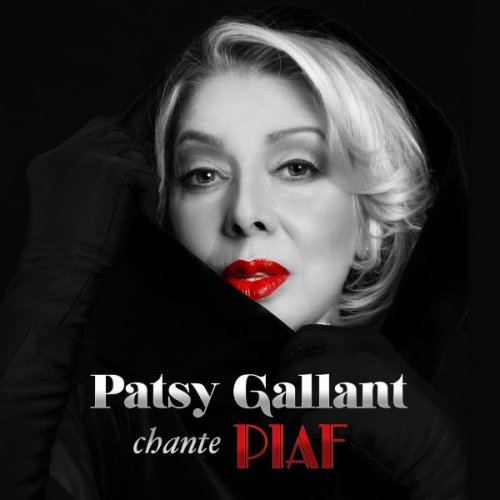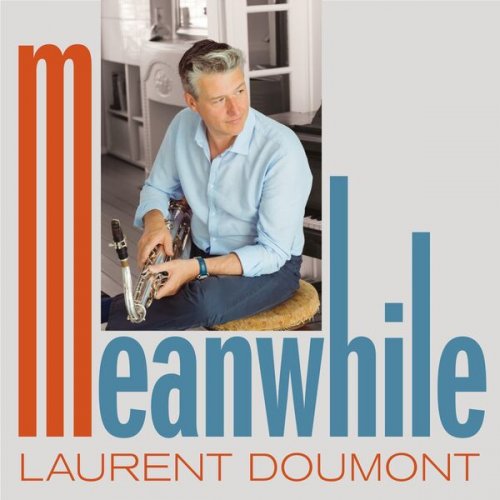Jeremy Udden - Wishing Flower (2023) [Hi-Res]

Artist: Jeremy Udden
Title: Wishing Flower
Year Of Release: 2023
Label: Sunnyside
Genre: Jazz
Quality: FLAC (tracks) / 24bit-96kHz FLAC (tracks)
Total Time: 46:07
Total Size: 255 / 892 MB
WebSite: Album Preview
Tracklist:Title: Wishing Flower
Year Of Release: 2023
Label: Sunnyside
Genre: Jazz
Quality: FLAC (tracks) / 24bit-96kHz FLAC (tracks)
Total Time: 46:07
Total Size: 255 / 892 MB
WebSite: Album Preview
1. Wishing Flower (4:16)
2. 1971 (5:31)
3. Lullaby (6:04)
4. Car Radio (4:54)
5. Pendulum (7:30)
6. Snowflake Paradox (4:36)
7. Prospective Retreat (6:28)
8. Fade Into You (6:52)
Growing up in an urban environment could lead to obliviousness to the natural world. Having grown up in a rural environment, saxophonist/composer Jeremy Udden was very aware of nature but living in metropolises made him seek nature’s touch in the city’s midst. Udden’s children have grown up in Brooklyn and he is frequently amazed at how attuned to nature his city kids are, just one of the intriguing juxtapositions he reflects in his new recording, Wishing Flower.
The music that Udden writes is generally autobiographical and focuses on the influences of his rural Massachusetts upbringing and maturation in the urban environments of Boston and New York City. Udden’s life has changed a lot since his debut recording, Torchsongs, nearly twenty years ago. Among these changes were the births of his two daughters, whose experiences as urban children has affected Udden’s perceptions of the world around him.
For his new recording, Udden used the inspiration of his children and their daily walks from school to write new compositions that reflect the sounds of the city through Udden’s singular musical lens, which blends the pastoral sounds of folk and country with contemporary jazz. Coming full circle, Udden recruited guitarist Ben Monder and drummer Ziv Ravitz to revisit their ensemble roles from Torchsongs, along with longtime collaborator, bassist Jorge Roeder.
Another change is the addition of the Lyricon to Udden’s musical voice. The Lyricon is an early 1970s electronic wind instrument built by Massachusetts inventor and synthesist Bill Bernardi. The analog instrument was the first wind synthesizer played like a saxophone and predated the EWI by years. Its sound was easily recognizable on the recordings of Steely Dan, Michael Jackson, Tom Scott, and Weather Report.
The past decade has seen Udden refine his technique on the Lyricon, adding pedals, looping devices, and triggering other synths to make soundscapes with keyboardist Pete Rende or guitarist Mike Baggetta. Though the alto saxophone remains the center of Udden’s sound, the Lyricon has become a welcome and far-reaching tool in his sonic palette, one that allows him to unify his rootsy acoustic identity with a contemporary, though analog, blue collar-electronic one.
The pieces that Udden wrote for Wishing Flower developed naturally and eventually were shaped programmatically to illustrate a walk through Brooklyn, picking up on sights and sounds, especially those beautiful but overlooked natural phenomena, like his daughters picking dandelions, or, as sher calls them: “wishing flowers.”
The quartet convened at Big Orange Sheep recording studio in Brooklyn after a day of rehearsal. Udden’s trust in the musicians and their abilities was rewarded, as they immediately understood the music and the project, easily finding the arch and the vibes of the songs, allowing them to finish the recording in only a single day of recording.
The recording begins with the title track, a light and breathy melody floats over the group’s rubato accompaniment, much akin to the sound of Paul Motian’s great ensembles. The upbeat “1971” rocks with a blues-rock swagger while Udden showcases his Lyricon playing for the first time. “Lullaby” is a simple tune written for Udden’s daughter that allows Monder’s guitar harmonies to provide a lush, ambient bed for the leader’s alto. The groove of “Car Radio” echoes the sounds of the street and features nice solos from Roeder and Monder, while Udden’s Lyricon provides a unique sound as the lead voice.
There is an initial calm in the motion of “Pendulum,” where electronic tones meet guitar and alto sax before the piece swings into a more aggressive edge with Monder out front. The concept behind Udden’s modest but catchy “Snowflake Paradox” relates to the philosophy of eschewing the weight of expectations. Udden ponders this in his own journey and that of his daughters. .
Having lived around Prospect Park in Brooklyn for years, Udden felt a strange correlation between worlds when he and his family began spending timeon another Prospect Street in Housatonic, Massachusetts. “Prospective Retreat” is written about their cozy new refuge.. The recording concludes with a unique take on Mazzy Star’s “Fade Into You,” where Udden tried to apply Paul Bleys advice of playing a song like you had never heard it before, made easier as three of the four members of the ensemble hadn’t heard of the piece prior to recording.
Recent reflections on his past and observations of his current situation as a father has made the juxtapositions of his influences more apparent than ever to Jeremy Udden. At the end of the day, Udden is an artist who enjoys the act of creation and being a part of a scene. Inspired by everyday moments, Wishing Flower brings Udden’s real and musical worlds together in a wonderfully listenable way.
Jeremy Udden - alto saxophone, Lyricon wind synthesizer
Ben Monder - electric guitar
Jorge Roeder - acoustic bass
Ziv Ravitz - drums
The music that Udden writes is generally autobiographical and focuses on the influences of his rural Massachusetts upbringing and maturation in the urban environments of Boston and New York City. Udden’s life has changed a lot since his debut recording, Torchsongs, nearly twenty years ago. Among these changes were the births of his two daughters, whose experiences as urban children has affected Udden’s perceptions of the world around him.
For his new recording, Udden used the inspiration of his children and their daily walks from school to write new compositions that reflect the sounds of the city through Udden’s singular musical lens, which blends the pastoral sounds of folk and country with contemporary jazz. Coming full circle, Udden recruited guitarist Ben Monder and drummer Ziv Ravitz to revisit their ensemble roles from Torchsongs, along with longtime collaborator, bassist Jorge Roeder.
Another change is the addition of the Lyricon to Udden’s musical voice. The Lyricon is an early 1970s electronic wind instrument built by Massachusetts inventor and synthesist Bill Bernardi. The analog instrument was the first wind synthesizer played like a saxophone and predated the EWI by years. Its sound was easily recognizable on the recordings of Steely Dan, Michael Jackson, Tom Scott, and Weather Report.
The past decade has seen Udden refine his technique on the Lyricon, adding pedals, looping devices, and triggering other synths to make soundscapes with keyboardist Pete Rende or guitarist Mike Baggetta. Though the alto saxophone remains the center of Udden’s sound, the Lyricon has become a welcome and far-reaching tool in his sonic palette, one that allows him to unify his rootsy acoustic identity with a contemporary, though analog, blue collar-electronic one.
The pieces that Udden wrote for Wishing Flower developed naturally and eventually were shaped programmatically to illustrate a walk through Brooklyn, picking up on sights and sounds, especially those beautiful but overlooked natural phenomena, like his daughters picking dandelions, or, as sher calls them: “wishing flowers.”
The quartet convened at Big Orange Sheep recording studio in Brooklyn after a day of rehearsal. Udden’s trust in the musicians and their abilities was rewarded, as they immediately understood the music and the project, easily finding the arch and the vibes of the songs, allowing them to finish the recording in only a single day of recording.
The recording begins with the title track, a light and breathy melody floats over the group’s rubato accompaniment, much akin to the sound of Paul Motian’s great ensembles. The upbeat “1971” rocks with a blues-rock swagger while Udden showcases his Lyricon playing for the first time. “Lullaby” is a simple tune written for Udden’s daughter that allows Monder’s guitar harmonies to provide a lush, ambient bed for the leader’s alto. The groove of “Car Radio” echoes the sounds of the street and features nice solos from Roeder and Monder, while Udden’s Lyricon provides a unique sound as the lead voice.
There is an initial calm in the motion of “Pendulum,” where electronic tones meet guitar and alto sax before the piece swings into a more aggressive edge with Monder out front. The concept behind Udden’s modest but catchy “Snowflake Paradox” relates to the philosophy of eschewing the weight of expectations. Udden ponders this in his own journey and that of his daughters. .
Having lived around Prospect Park in Brooklyn for years, Udden felt a strange correlation between worlds when he and his family began spending timeon another Prospect Street in Housatonic, Massachusetts. “Prospective Retreat” is written about their cozy new refuge.. The recording concludes with a unique take on Mazzy Star’s “Fade Into You,” where Udden tried to apply Paul Bleys advice of playing a song like you had never heard it before, made easier as three of the four members of the ensemble hadn’t heard of the piece prior to recording.
Recent reflections on his past and observations of his current situation as a father has made the juxtapositions of his influences more apparent than ever to Jeremy Udden. At the end of the day, Udden is an artist who enjoys the act of creation and being a part of a scene. Inspired by everyday moments, Wishing Flower brings Udden’s real and musical worlds together in a wonderfully listenable way.
Jeremy Udden - alto saxophone, Lyricon wind synthesizer
Ben Monder - electric guitar
Jorge Roeder - acoustic bass
Ziv Ravitz - drums



![Bob James, David Sanborn, Tsuyoshi Yamamoto, Susan Wong, Fourplay - The Best Of Evosound Audiophile (2024) [SACD] Bob James, David Sanborn, Tsuyoshi Yamamoto, Susan Wong, Fourplay - The Best Of Evosound Audiophile (2024) [SACD]](https://www.dibpic.com/uploads/posts/2026-02/1771744987_folder.jpg)




